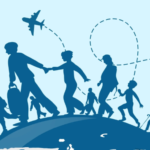Autism spectrum disorder (ASD) affects millions of people globally, but in Africa, where societal and infrastructural challenges are prevalent, the situation can be particularly dire. As someone deeply invested in the well-being of individuals with autism, understanding the role of national policies in shaping an inclusive environment is crucial.
This article explores how national policies can transform the landscape of autism support in African nations, with a focus on Nigeria, South Africa, and Kenya. We will also discuss the importance of reforms and practical steps you can take to advocate for change.
Understanding the Autism Challenge in Africa
In Africa, autism is often misunderstood, leading to stigma and limited access to services. Families struggle with a lack of resources, from diagnostic tools to specialized education and therapeutic services.
A 2018 study by the African Journal of Psychiatry highlighted that many African countries have minimal autism-specific services, resulting in late diagnoses and inadequate support for affected individuals.
You can also check an interesting publication, “Autism in Africa: prevalence, diagnosis, treatment and the impact of social and cultural factors on families and caregivers” at the National Library of Medicine. The following are the three highlights from the publication:
- Autism in Africa is understudied and there is limited data on the prevalence of the condition. However, studies suggest that the prevalence of autism in Africa is similar to other parts of the world.
- There are significant challenges in diagnosing and treating autism in Africa, including limited access to resources and trained professionals, as well as differences in cultural beliefs and attitudes towards autism.
- Social and cultural factors, such as stigma, discrimination, and a lack of awareness, can have a significant impact on families and caregivers of individuals with autism in Africa.
The need for robust national policies to address these challenges cannot be overstated. Without a clear policy framework, progress in autism support is sporadic and uneven.
In Nigeria, for example, while there are some initiatives, they often fall short due to inconsistent implementation and limited reach.
Examining Existing Policies in Africa
Let’s take a closer look at how different African nations are currently addressing autism through their policies:
Nigeria:
Nigeria’s approach to autism is still in its nascent stages. The country has seen some progress with initiatives like the “National Policy on Disability,” which includes autism in a broader context of disabilities.
However, this policy lacks specificity on autism, leading to gaps in service provision. See the article: Nigeria Passes Disability Rights Law, on human rights watch.
According to the Journal of Autism and Developmental Disorders, this general approach often results in autism-specific needs being overlooked.
South Africa:
South Africa has made notable strides with its Autism South Africa (ASA) organization, which has been advocating for better services and support. The South African government has also introduced policies like the “White Paper on the Rights of Persons with Disabilities,” which outlines the need for inclusive education and services.
However, challenges remain in terms of implementing these policies effectively and ensuring they reach all areas, particularly rural regions.
Kenya:
Kenya has made efforts to address autism through policies such as the “Persons with Disabilities Act,” which includes provisions for autism. Yet, similar to other nations, Kenya faces hurdles in fully implementing these policies.
The Kenya National Commission on Human Rights has reported gaps in policy execution and resource allocation, affecting the quality of support services.
The Impact of Inclusive Policies
When national policies are effectively implemented, they can bring about significant benefits. Inclusive policies do more than provide direct support to individuals with autism; they also contribute to broader social and economic gains.
For instance, inclusive education policies can improve educational outcomes, enabling individuals with autism to reach their full potential and contribute economically.
Research from the World Health Organization shows that inclusive practices can reduce long-term costs related to disability services by fostering independence and productivity. See World Health Organization Policy on Disability.
It’s important also to note that, inclusive policies can help combat stigma and promote social acceptance. By integrating autism into national frameworks and public discourse, we can help shift societal attitudes, making it easier for individuals with autism to participate fully in their communities. What about advocacy?
Advocating for Policy Reforms
To make meaningful progress, several key areas will require reform:
- Comprehensive National Strategies: Developing specific, detailed autism strategies is essential. These strategies should address diagnosis, treatment, education, and employment support. The National Autism Society suggests that such comprehensive frameworks are critical for ensuring that all aspects of autism support are covered.
- Training and Capacity Building: African educators, healthcare providers, and policymakers need specialized training to understand and address autism effectively. This training should be an integral part of policy implementation, ensuring that all stakeholders are equipped to provide high-quality support.
- Enhanced Support Services: Increasing funding for autism services, including early intervention programs and educational accommodations, is crucial. Policies must ensure that resources are allocated efficiently and reach those who need them most.
- Public Awareness Campaigns: Raising awareness about autism is key to reducing stigma and promoting acceptance. National policies in diffident African counties should include provisions for public education campaigns to foster a more informed and compassionate society.
Engaging Stakeholders
Advocacy for autism policy reform requires collaboration between various stakeholders across African countries. Government bodies, non-governmental organizations (NGOs), and community groups all have roles to play. The International Autism Foundation highlights that building coalitions and fostering partnerships can amplify advocacy efforts and drive policy changes (IAF, 2021).
Do not forget that families and individuals affected by autism also have a crucial role. Your voices can bring attention to the needs and challenges faced by those with autism, influencing policymakers and encouraging more inclusive practices.
Practical Steps for Advocacy
Here’s how you can get involved in advocating for autism policy reform:
- Support Local Initiatives: Engage with local autism organizations and support their efforts to improve services and raise awareness.
- Participate in Policy Discussions: Attend community meetings and public forums where autism policies are discussed. Your participation can help shape the direction of policy development.
- Raise Awareness: Use social media and community platforms to share information about autism and advocate for policy changes. Public awareness can drive demand for better policies and services.
- Collaborate with Stakeholders: Build networks with other advocates, organizations, and policymakers to strengthen your efforts and broaden the impact of your advocacy.
Conclusion
Building an inclusive future for individuals with autism in Africa is a shared responsibility. National policies play a pivotal role in creating an environment where individuals with autism can thrive.
By understanding the current landscape, advocating for necessary reforms, and actively participating in advocacy efforts, you can contribute to a more inclusive and supportive society for all.



















